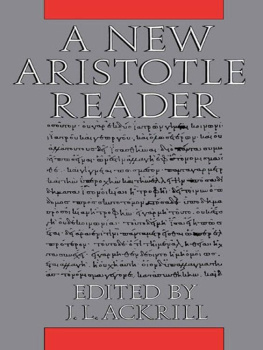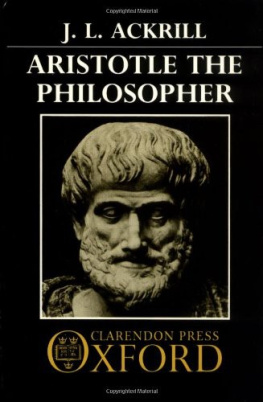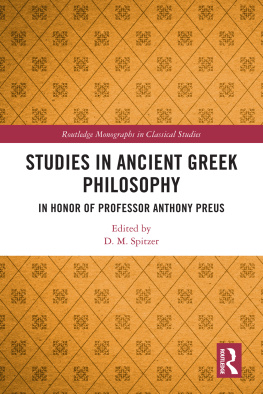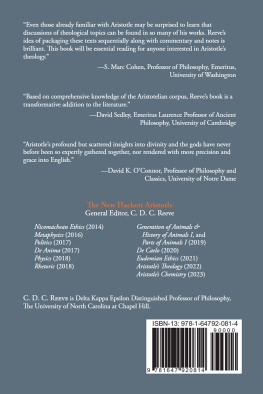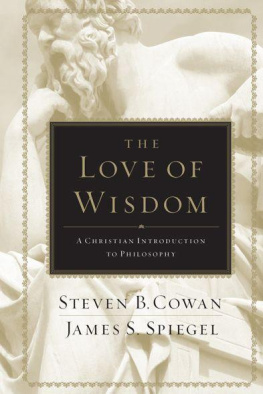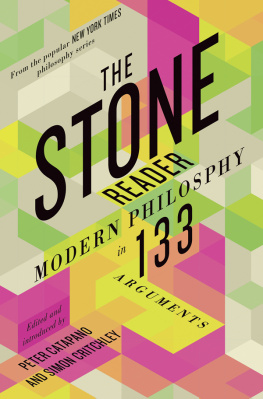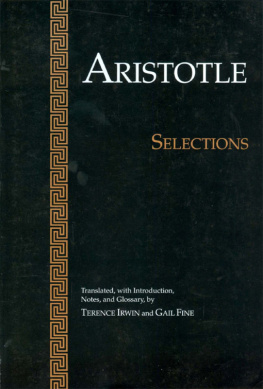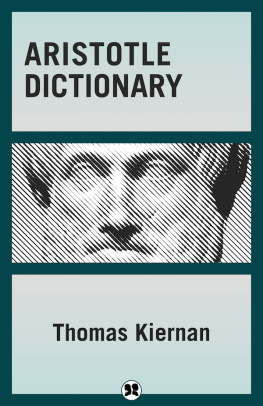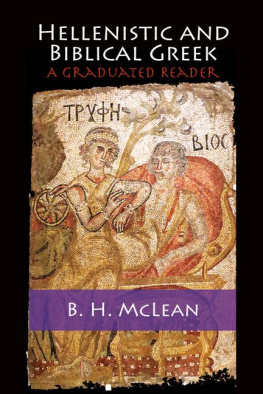This list contains all the works translated or referred to in this volume. The order is the traditional one: Logic, Natural Philosophy, Metaphysics, Practical Philosophy.
References to Aristotle's works may be by book and chapter, but use is also made of the numerals and letters printed in the outer margin. These derive from Bekker's 1831 edition of the text. Thus 170a13 refers to the thirteenth line of the left column on page 170 of Bekker's edition. The line-number in a translation cannot always coincide exactly with the line in the Greek.
INTRODUCTION
General Aim
The main aim of this book is to provide in a single volume reliable translations of those parts of Aristotle likely to be of most interest to students of philosophy. A secondary aim is to supply, as an aid to study, a list of key topics together with appropriate reading-lists. In what follows I shall explain briefly how I have tried to achieve these aims.
The Texts and Translations
In selecting the texts I have drawn on experience of graduate classes, and I have tried to include all the texts necessary for a careful study of most aspects of Aristotle's philosophy. Some will find here more of Aristotle than they need. I hope that they will turn this to advantage by reading more widely than they would otherwise have done.
I have been reluctant to cut up Aristotle's works and give mere snippets. It is necessary to read an extended passage if one is to gather the context and the flow of argument, and to get an idea of Aristotle's style of philosophizing.
Some themes cannot be adequately represented in a selection such as this. I mention three. Formal logic: I have included the basic chapters on the syllogism, but a close study of Aristotle's formal logic (including his modal logic) will require reference to the Prior Analytics as a whole. Biology: passages of philosophical importance are to be found scattered among lengthy works of a predominantly descriptive and classificatory nature. This book includes some of the main starting-points, to tempt the student interested in the philosophical issues to read more widely in Aristotle's biological works. Political philosophy: I have included material that is of interest to every student of Aristotle's practical philosophy, but the specialist in political philosophy will naturally have to read much more of the Politics.
Recent translations of Aristotle have sought and often achieved a high degree of accuracy. They have tried to keep close to the text in order to put the Greekless reader as nearly as possible in the position of a reader of Greek; they have tried not to incorporate too much interpretation into their renderings. For a rough idea of Aristotle a rough but readable translation is entirely suitable; for a real understanding it will not do.
Aristotle's prose is direct, concise, and vigorousa good vehicle for philosophical argument. But not all the works as we have them are in a revised and polished form. Some read more like lecture-notes than books ready for the publisher. Moreover, some have a relatively technical character, and employ technical terms or make use of ordinary words in special ways. For these reasons the translations of different works will themselves vary in style, from the smooth and flowing to the terse and elliptical.
The translations contained in this book are all careful and good translations. Many come from the Clarendon Aristotle series (Oxford University Press), a series of volumes specially designed to provide accurate versions for philosophical students. Several, including the long extracts from the Nicomachean Ethics and Metaphysics, come from the recently revised Oxford Aristotle translation (Princeton University Press, 1984).
One important feature of a good translation is consistency in the rendering of key terms, since philosophical questions often revolve around such terms and the reader wants to know when they are being used. Ideally some thirty or forty Greek words would be transliterated: the words substance, essence, being would not appear but only ousia; instead of account, reason, speech, argument etc. there would be logos. The nearest practicable approach to this is to use relatively few equivalents, and to provide a glossary.

